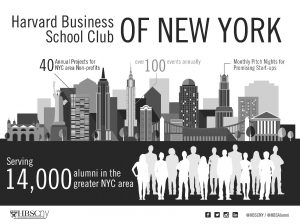
A group of friends sits safely in an apartment overlooking The Charles river. It’s a week until one of the most divisive elections in US history. The HBS MBA students are from all over the world, different ethnicities, different nationalities and backgrounds.
The discussion that follows is illuminating. The candidates and their statements are hotly debated, at one point the conversation even questions the fundamentals of democracy (after Brexit, the Brit in the group is unsure it’s that palatable). This, remarks one student, is what I came to HBS for. To openly debate views and be challenged.
However, in a world where everything we say is increasingly monitored, such debates are ever more rare. People are too afraid to speak their minds, lest a future version of themselves has to deal with the shadow of fleeting words they no longer believe in.
This is a pity. Without open and honest debate opinions can never be changed, and arguments cannot be strengthened. People refuse to speak up against what is ‘accepted’. Then, one day the veil is lifted and it becomes apparent that the long held ‘accepted’ view is no longer the ‘popular’ view. Half the country begins spouting rhetoric that only yesterday would have been deemed abhorrent.
But just how free should we be to speak our minds? A recent Pew Research found that people in the US make a distinction based on what is being expressed. Of those surveyed, 77% believed that people should be able to make offensive statements about religion or beliefs. 67% believed that people should be able to speak out against minority groups, while 52% believed that public, sexually explicit statements were OK.
What is interesting is the psychology behind these figures. Respondents were much more likely to agree to free speech, so long as it was not against them. Ethnic minorities, for example, are much less supportive of offensive language towards minority groups than the white Americans polled.
Taken to the extreme, free speech is a tough pill to swallow. Do I want the sexist, racist and prejudiced to be able to shout their views from the roof tops? Does allowing them to say such words normalize and numb society to them? Or does the ensuing debate help?
During the recent election campaign Trump’s disparaging remarks towards women were devoured and publicized by the press. Some felt that this set a new standard, legitimizing ‘locker room banter’ and sexual assault. In my opinion, however, the ensuing discussion was painful but necessary. Debate on topics like sexual assault have, for too long, been swept under the carpet. Just google ‘locker room banter’ and a plethora of articles now appear. This can only be a good thing.
That free speech is necessary is not a revolutionary insight. In HBS terms, it is a mediocre comment at best, unlikely to be remembered by any section-mate or professor. However, with free speech should come the ability to freely change one’s mind. And unfortunately that is not a society we live in.
We look at those who ‘flip-flop’ with derision. Politicians who radically alter their stances are not readily forgiven. Take Hillary Clinton’s position on the Trans-Pacific Partnership, which she once called the “gold standard”.
The candidates in the 2016 US election faced a barrage of ‘flip-flop’ accusations. That they changed opinions over the course of decades was taken to imply unreliability, inauthenticity and untrustworthiness.
But shouldn’t we celebrate people who change their opinions? Doesn’t it show personal growth? Surely the most intelligent people are the ones who can recognize when they are wrong.
Which brings me back to HBS, and the opinions we are too scared to express here.
When I asked many of my friends to write for this paper on their political views, both Republicans and Democrats declined. To write down beliefs which might change, and which through social media may always be associated with their names, is too risky. When I looked back in the archives of this paper, there was only one article which referenced politics – it was written about Nixon. It seems HBS students have always been timid about putting their names to opinions.
Is there a solution? In that in a world in which increasingly will not forget, perhaps we should learn to forgive those that change their minds. And if we cannot forgive, perhaps anonymous debate is better than no discussion at all.
—————————————–
Preeya Sud (HBS ’17) is the current Editor in Chief of The Harbus. Prior to HBS she studied law, before making the logical jump to marketing at P&G, where she spent five years working across Scandinavia and the UK. She is passionate about business, politics and writing.



